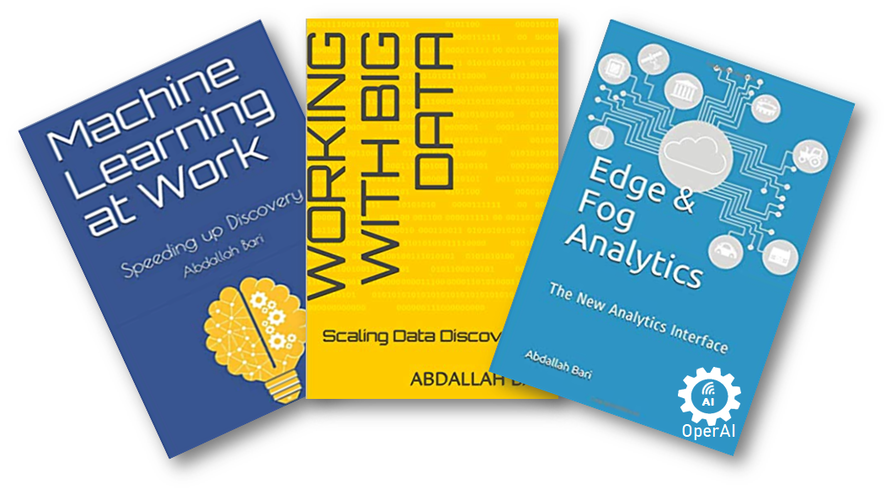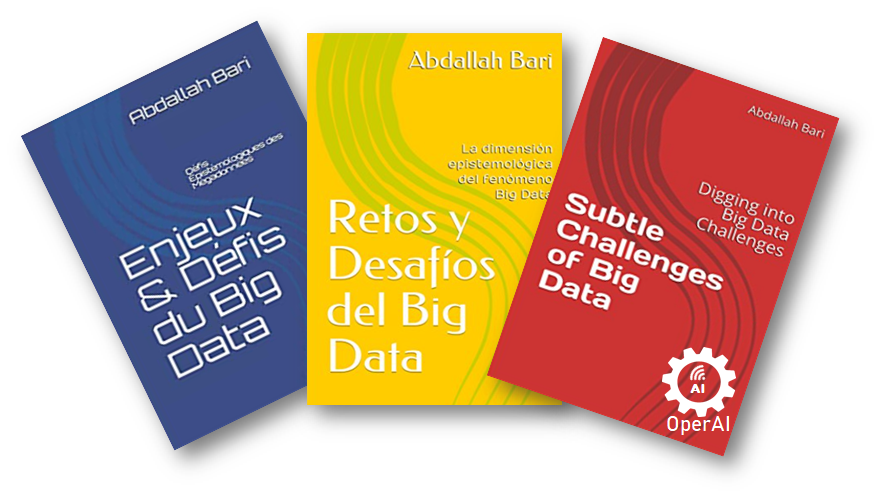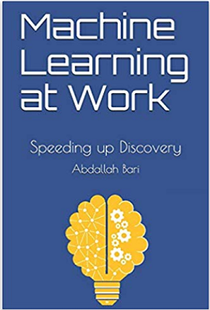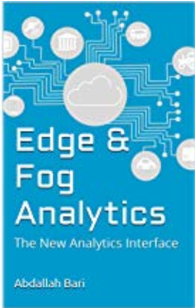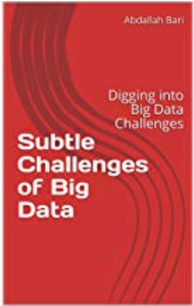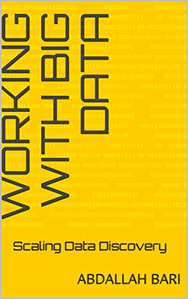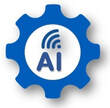OperAI publishes books and articles in support of AI applications in the cloud and the edges. The books contain information on different techniques spanning BIG Data, ML/AI techniques and the Internet of Things (IoTs) as well as market trends. These books contain several practical walk-through examples on data integration, feature engineering and different AI frameworks and techniques to speed and streamline operational processes.
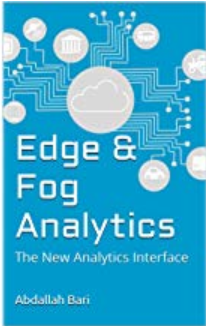
AI at the Edges
This book is about a new paradigm shift in the current analytics landscape where the edges and the fog are becoming the new interface for analytics insights and for hosting new artificial intelligence applications. According to Automation World: “Both edge analytics and fog analytics involve pushing intelligence and processing capabilities down closer to where the data originates.”
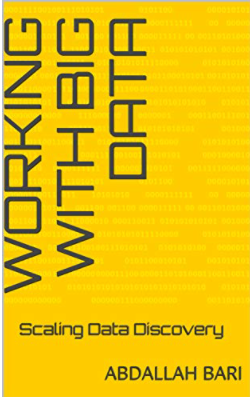
Working with Big Data
Big Data's rapid growth has definitely created radical shifts with new opportunities, leading organisations and companies to shift their activities towards more data-driven decisions with the help of machine learning (ML) techniques and artificial intelligence (AI). A shift from stand-alone traditional desktop computing to embrace a more comprehensive strategy such as Mesh App and Service Architecture (MASA) strategy banking on Big Data to allow more dynamic connection of people, processes, things and services that are supporting today’s increasingly intelligent (AI) digital ecosystems, according to Gartner (2017).
The book refers to the different techniques and tools used to address the ambiguity and uncertainty as well as scaling challenges that helped to transform, analyse, and reveal hidden patterns. The identified patterns were used, in turn, successfully in the discovery process. The tools are presented, in this book, within the perspective that these tools will lend themselves to also scale as the technologies and methodologies evolve.
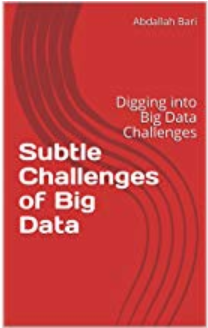
Addressing Big Data Challenges
Big Data has shown its tremendous potential to transform industries, such as healthcare and insurance industries, and to empower artificial intelligence and machine learning at an unequivocal scale. However, there are concerns that Big Data may lose much of its usefulness, potentially generating new unintended consequences if epistemological (explanatory frameworks of knowledge generated) challenges are not addressed. Big Data has grown tremendously rapidly leading to data to outpace concepts. Conceptual investigations and mathematical theoretical frameworks are to theory formulation what methodology is to Big Data gathering and Big Data analytics. A lack of conceptual frameworks to address epistemological challenges of Big Data may slow progress in innovations and delay the development of Big Data's prospective applications according to recent reports and publications on Big Data. The book recalls the vigilance of Gaston Bachelard regarding the precision in making decisions based on the data alone.
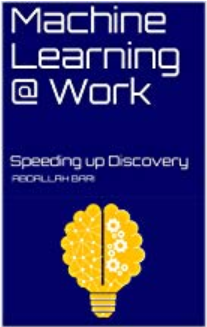
Machine Learning at Work
The book introduces ML and its potential along with some ML applications using Spark and R platforms combined. While Spark has the possibility to scale and speed up analytics, it harness R language‘s machine learning capabilities beyond what is available on Spark or any other Big Data system. R and Spark can share codes and different types of data and carry out powerful large scale machine learning capabilities. Machine learning with Spark and R language combined can not only speed up but also light up Big Data Discovery.
The book contains 10 chapters, the first chapter highlights ML quests, chapter 2 provides a detailed historical perspective, chapter 3 shows how ML works by introducing conceptual frameworks of ML, chapter 4 lists some of the metrics used to assess the performance of ML types. Chapter 5, 6 and 7 focus on different types of ML including supervised, unsupervised and reinforced learning. Chapter 8 and chapter 9 introduce the ML implementation platforms of R and Spark with their different libraries including Spark MLlib. Chapter 10 provides different walk-through ML examples using both R and Spark ML techniques.
Enjeux & Défis du Big Data: Défis Épistémologiques des Mégadonnées
La contribution des méga-données représente 5% et 6% de la productivité et de la croissance de la production enregistrées pour les entreprises qui adoptent une prise de décision basée sur les méga-données, d’après le rapport de 2014 par le Massachusetts Institute of Technology (MIT). Le rapport de 2011 par McKinsey Global Institute (MGI) prévoit des améliorations encore plus substantielles et plus importantes à venir dans le futur proche. Cependant, à mesure que ces mega-données augmentent massivement et rapidement elles créent également des enjeux et des défis épistémologiques avec de nouvelles controverses telles que la question de savoir si ces mega-données peuvent rendre la science obsolète?
Ce livre est une traduction de la version anglaise qui s’intitule "Subtle Challenges of Big Data". Ce livre qui rappelle la vigilance de Gaston Bachelard envers la précision dans la prise des decisions basées sur les données, souligne également l'importance de faire face à la pénurie des talents sans précédent, perturbant le marché du travail presque dans tous les pays.
Retos y Desafíos del Big Data: La dimensión epistemológica del fenómeno Big Data
La gran cantidad de datos ha crecido muy rápidamente, lo que ha generado datos que sobrepasan los conceptos y los marcos conceptuales teóricos. La falta de marcos teóricos para abordar los desafíos de la generación de conocimiento en grandes cantidades de datos puede ralentizar los avances en innovación y retrasar el desarrollo de futuras aplicaciones de grandes datos de acuerdo con estos informes y publicaciones recientes sobre este tema.
Este libro tiene como objetivo contribuir al debate sobre los desafíos de grandes datos, en particular la dimensión epistemológica del fenómeno. El libro también destaca la importancia de abordar la brecha de talentos sin precedentes, que afecta el mercado laboral en casi todos los países.
---
Esta es una traducción del primer capítulo del libro "Subtle Challenges of Big Data" - www.amazon.com/dp/1521580928/.
Este capítulo también se refiere a un nuevo libro "Scaling Data Discovery", que está altamente calificado y recomendado recientemente - www.amazon.com//dp/B0786QHJL7/.
Reviews & Comments
|
Fantastic book, Big Data of Things!
"Amazing book, goes from overview to details for most aspects of Big Data if not all, if you are a beginner to Data Sci, AI, Machine Learning, this book will help. Some content are mathematical, programming or scripting experience could enlighten you better. Overall time well spent, highly recommend it." |
Excellent book!
"Excellent book, didactic, concise with a global view of the ML universe. I'm using it, with others, to prepare my introductory ML course. I also strongly recommend reading for executives who wish to have a comprehensive, well-written, concise overview of ML." Edileusa E. Prado |
|
Services & Products
|
Books - ML/AI related
|
Team Members
|
